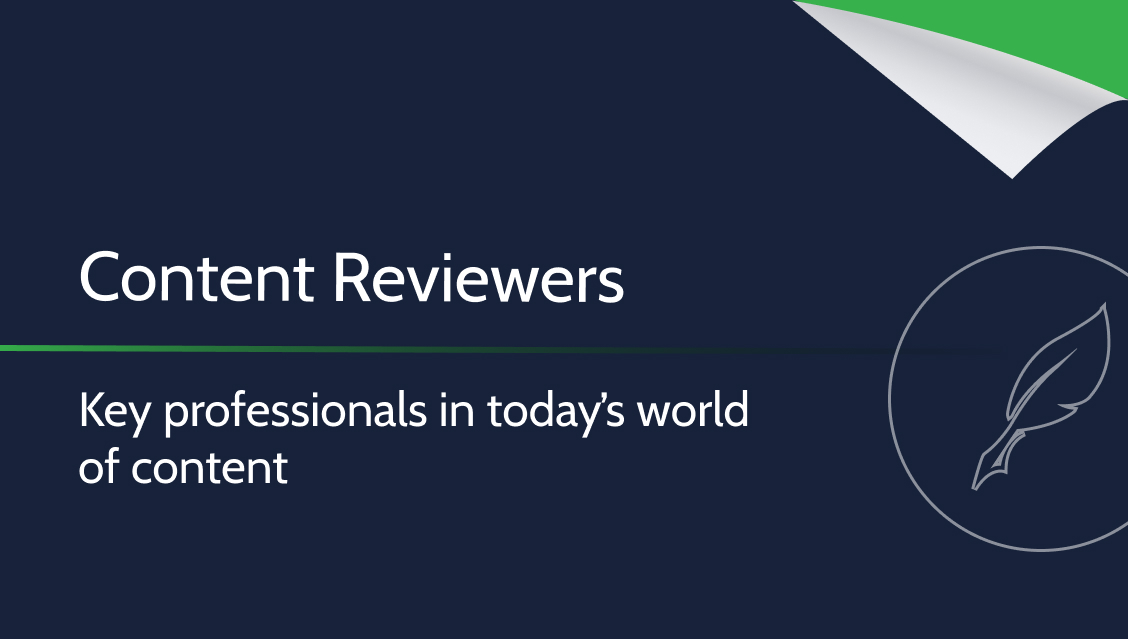Content reviewers: key professionals in today’s world of content

In the digital age, digital content plays an increasingly important role in our everyday lives. The internet is full of diverse materials, and their quality is important for both consumers and creators. In this context, the role of a content reviewer becomes more significant. Who is a content reviewer, what do they do, and what requirements do employers impose on them? You will find out from this article.
Who is a content reviewer?
A content reviewer is a person who evaluates and checks materials such as articles, blogs, videos, images, website content, and even social media posts.
Their task is to ensure that the materials comply with specific guidelines, values, principles, and quality standards. Content reviewers may also check grammar, writing style, formatting, and other elements that contribute to overall quality.
Individuals in this role often work for publishers, advertising agencies, game production companies, websites, and other media outlets. They can also be employed as independent experts or contractors. Depending on the type of content, reviewers may have different qualifications and specializations, such as language proficiency, technical knowledge, or the ability to work with various content creation and editing tools.
What does a content reviewer do?
The main tasks of a content reviewer include:
- Checking content quality: The reviewer evaluates the content for grammar, writing style, clarity of communication, structure, and formatting. They may also assess compliance with guidelines regarding tone and style.
- Ensuring compliance with guidelines and policies: The content reviewer ensures that materials align with specific guidelines, values, and principles such as privacy policies, copyright laws, brand values, or partnership guidelines.
- Monitoring social media content: When working with social media, the reviewer may assess posts, comments, and other forms of interaction to ensure they comply with community guidelines and platform policies.
- Fact-checking: For content based on information, the content reviewer may verify the accuracy and truthfulness of data by referencing sources and conducting research.
- Collaborating with team members: Content reviewers often work together with writers, editors, graphic designers, and other specialists to make corrections and improvements to materials.
- Tracking trends and changes: Content reviewers need to stay up-to-date with industry trends, changes, new guidelines, and regulations to adapt their practices to current requirements.
- Writing reports and recommendations: In some cases, content reviewers may be responsible for creating reports analyzing content, assessing its compliance with guidelines, and providing recommendations for improvements.
What requirements do employers have towards content reviewers?
The requirements for this role may vary depending on the type of content, industry, company or specialization.
Here is a list of qualifications that employers often expect from candidates:
- Education: Employers may require a higher education degree, often in fields related to communication, journalism, marketing, literature, linguistics, or a content-related field that the reviewer will be assessing.
- Experience: Many employers expect experience in working with content, such as editing, creating, reviewing, or evaluating. Some companies may require experience in a specific industry or working with certain types of content.
- Writing and editing skills: A content reviewer should possess excellent writing and editing skills to assess content quality, identify errors, and suggest improvements.
- Language proficiency: Fluency in the language of the content being reviewed is crucial, and in some cases, additional language proficiency may be required.
- Analytical skills: Content reviewers need to analyze content and evaluate its compliance with guidelines, values, and standards.
- Knowledge of policies and regulations: Content reviewers should be aware of relevant legal regulations such as copyright laws, data protection, advertising rules, and promotion guidelines.
- Interpersonal skills: Content reviewers often collaborate with other team members such as editors, writers, and designers, so strong communication and collaboration skills are important.
- Familiarity with tools and technology: Employers may expect familiarity with specific tools and technologies used for content creation, editing, and management, such as content management systems (CMS), text editors, or change-tracking tools.
- Ability to work under time pressure: Content reviewers often have to work within deadlines and handle multiple tasks simultaneously. The ability to work under time pressure is essential.
Summary
- A content reviewer is an individual responsible for evaluating, monitoring, and verifying various types of materials such as texts, videos, etc.
- The main tasks of a content reviewer include checking quality, ensuring compliance with guidelines and policies, as well as fact-checking.
- Requirements for content reviewers may include higher education, experience in working with content, and interpersonal skills.
















Leave a Reply